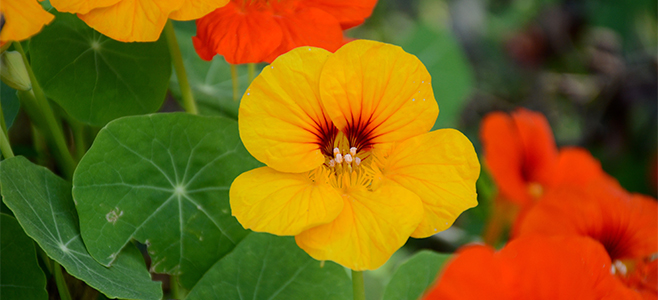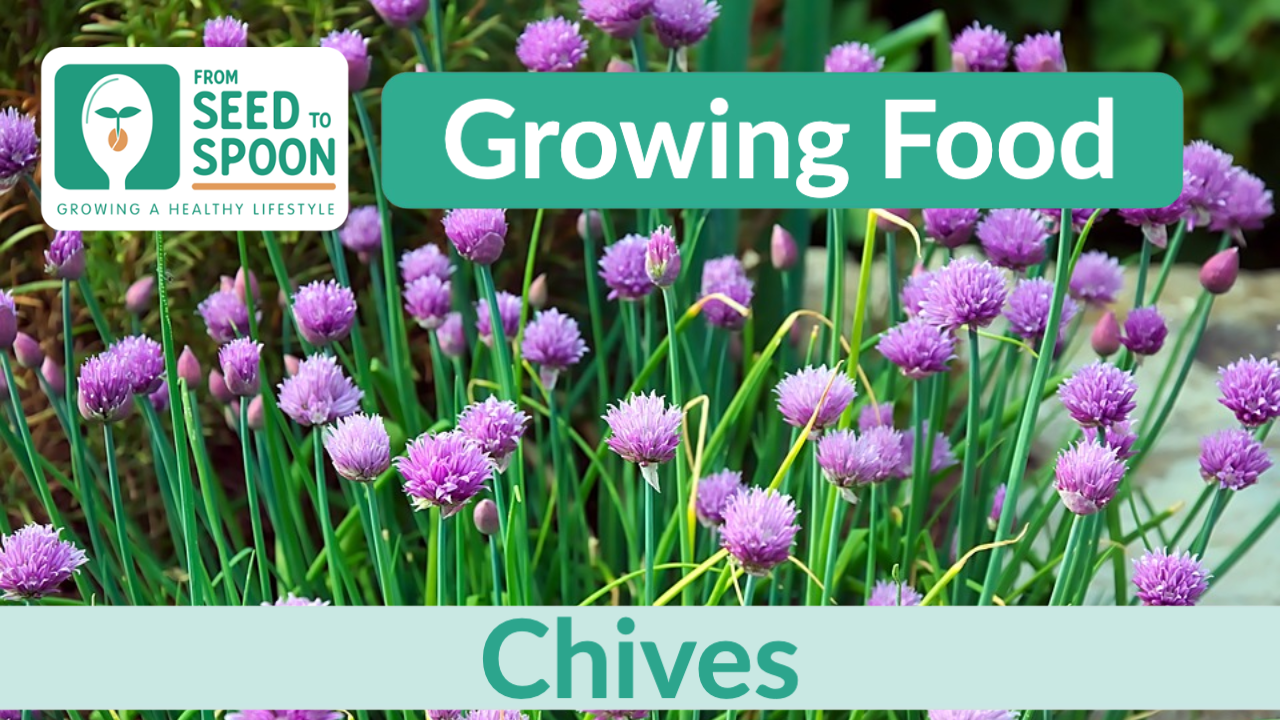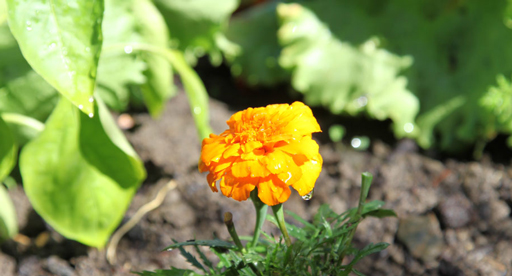Companion Plants That Will Make Your Mulberry Tree Thrive
Companion Planting for Mulberry Trees
Mulberry trees are a delicious and versatile addition to any garden. They can be grown for their fruit, their shade, or even their ornamental value. But did you know that companion planting can help your mulberry tree thrive?
Companion planting is the practice of planting certain plants together to benefit each other. By choosing the right companion plants, you can improve the health, productivity, and pest resistance of your mulberry tree.
In this blog post, we will discuss the best companion plants for mulberry trees. We will also provide some tips on how to plant and care for these plants together.
Benefits of Companion Planting
There are many benefits to companion planting with mulberry trees. Some of the most important benefits include:
- Improved pollination: Companion plants can attract pollinators, such as bees and butterflies, which help to pollinate the mulberry tree. This can lead to a better fruit crop.
- Reduced pest and disease pressure: Companion plants can help to attract beneficial insects, such as ladybugs and lacewings, which prey on pests that attack mulberry trees. They can also help to suppress the growth of weeds and diseases.
- Improved soil health: Companion plants can help to improve the soil around the mulberry tree by adding nutrients and organic matter. This can help to the tree to grow healthier and more productive.
- Increased diversity: Companion planting can help to increase the diversity of your garden, which can make it more attractive to wildlife.
Best Companion Plants for Mulberry Trees
There are many different companion plants that can be beneficial for mulberry trees. Some of the best options include:
- Alliums: Alliums, such as garlic, onions, and chives, help to repel pests and diseases. They also add nitrogen to the soil, which is beneficial for mulberry trees.
- Brassicas: Brassicas, such as broccoli, cabbage, and kale, attract beneficial insects and help to suppress the growth of weeds.
- Flowers: Flowers, such as marigolds, nasturtiums, and lavender, attract pollinators and help to deter pests. They also add beauty and fragrance to the garden.
- Herbs: Herbs, such as mint, oregano, and thyme, help to repel pests and diseases. They also add flavor to food and can be used for medicinal purposes.
- Nitrogen-fixing plants: Nitrogen-fixing plants, such as clover and beans, help to add nitrogen to the soil. This is beneficial for mulberry trees, as nitrogen is an important nutrient for plant growth.
How to Plant and Care for Companion Plants with Mulberry Trees
When planting companion plants with mulberry trees, it is important to choose plants that have similar water and sun requirements. You should also plant the companion plants close enough together so that they can benefit each other.
Once the companion plants are planted, it is important to care for them properly. This includes watering them regularly, fertilizing them as needed, and weeding around them.
With proper care, your mulberry tree and its companion plants will thrive together.
Conclusion
Companion planting is a great way to improve the health, productivity, and pest resistance of your mulberry tree. By choosing the right companion plants and caring for them properly, you can create a thriving garden that is both beautiful and productive.
Mulberry trees are a great addition to any garden, but they can be even better when paired with the right companion plants. Companion planting is a gardening technique that involves planting different types of plants together to benefit each other. There are many different companion plants that can be grown with mulberry trees, but some of the best include:
- Comfrey: Comfrey is a nitrogen-fixing plant that can help to improve the soil around your mulberry tree. It also attracts beneficial insects, which can help to control pests.
- Nasturtiums: Nasturtiums are another nitrogen-fixing plant that can help to improve the soil. They also attract beneficial insects and deter pests.
- Alliums: Alliums, such as garlic, chives, and onions, can help to repel pests and diseases from your mulberry tree.
- Other fruit trees: Planting other fruit trees near your mulberry tree can help to attract pollinators.
If you're looking for more information about companion plants for mulberry trees, I recommend visiting Gardenia Inspiration. This website has a comprehensive list of companion plants for mulberry trees, as well as information about the benefits of companion planting.
FAQ of companion plants for mulberry tree
Question 1: What are the best companion plants for mulberry trees?
Answer: The best companion plants for mulberry trees are those that have similar growing conditions and can help to deter pests and diseases. Some good options include:
- Alliums: These plants, such as garlic, chives, and onions, help to repel pests and improve soil health.
- Beans: Beans are nitrogen-fixing plants, which means they can help to improve the soil nitrogen levels around the mulberry tree.
- Herbs: Herbs such as mint, rosemary, and thyme can help to deter pests and attract pollinators.
- Flowers: Flowers such as marigolds, nasturtiums, and sunflowers can help to attract pollinators and deter pests.
- Other fruit trees: Planting other fruit trees near your mulberry tree can help to attract pollinators and improve the overall health of your garden.
Question 2: What should I avoid planting near my mulberry tree?
Answer: There are a few plants that you should avoid planting near your mulberry tree, including:
- Black walnut trees: Black walnut trees produce a chemical called juglone, which can inhibit the growth of other plants.
- Grapes: Grapes can compete with mulberry trees for water and nutrients.
- Cabbage family plants: Cabbage family plants, such as broccoli, cauliflower, and Brussels sprouts, can attract pests that also attack mulberry trees.
Question 3: How far apart should companion plants be planted from my mulberry tree?
Answer: The best distance to plant companion plants from your mulberry tree depends on the size of the plants. For small plants, such as herbs, you can plant them within a few feet of the tree. For larger plants, such as beans or fruit trees, you should plant them at least 10 feet away from the tree.
Question 4: How do I know if I'm planting the right companion plants for my mulberry tree?
Answer: There are a few things you can do to make sure you're planting the right companion plants for your mulberry tree:
- Do some research: There are many resources available online and in libraries that can help you identify good companion plants for mulberry trees.
- Talk to a local nursery: The staff at a local nursery can help you choose the right companion plants for your mulberry tree based on your specific growing conditions.
- Observe your garden: Pay attention to how your plants are doing and make adjustments as needed. If you see that certain plants are not doing well, you may need to move them or replace them with different plants.
Question 5: What are some other benefits of companion planting?
Answer: In addition to deterring pests and diseases, companion planting can also offer a number of other benefits, including:
- Improved soil health: Companion plants can help to improve soil health by adding nutrients, breaking down organic matter, and suppressing weeds.
- Increased pollination: Companion plants can attract pollinators, which can help to increase the fruit production of your mulberry tree.
- Visual appeal: Companion plants can add visual interest to your garden and help to create a more diverse ecosystem.
Image of companion plants for mulberry tree
- Nasturtium: Nasturtium is a flowering plant that is known for its bright orange and yellow blooms. It is a good companion plant for mulberry trees because it helps to deter pests and attract pollinators.

- Chives: Chives are a member of the onion family and are known for their pungent flavor. They are a good companion plant for mulberry trees because they help to repel pests and improve the soil.

- Garlic: Garlic is another member of the onion family and is known for its strong flavor. It is a good companion plant for mulberry trees because it helps to repel pests and improve the soil.

- Marigold: Marigolds are a flowering plant that is known for its bright orange and yellow blooms. They are a good companion plant for mulberry trees because they help to deter pests and attract pollinators.

- Comfrey: Comfrey is a flowering plant that is known for its medicinal properties. It is a good companion plant for mulberry trees because it helps to improve the soil and attract pollinators.

Post a Comment for " Companion Plants That Will Make Your Mulberry Tree Thrive"